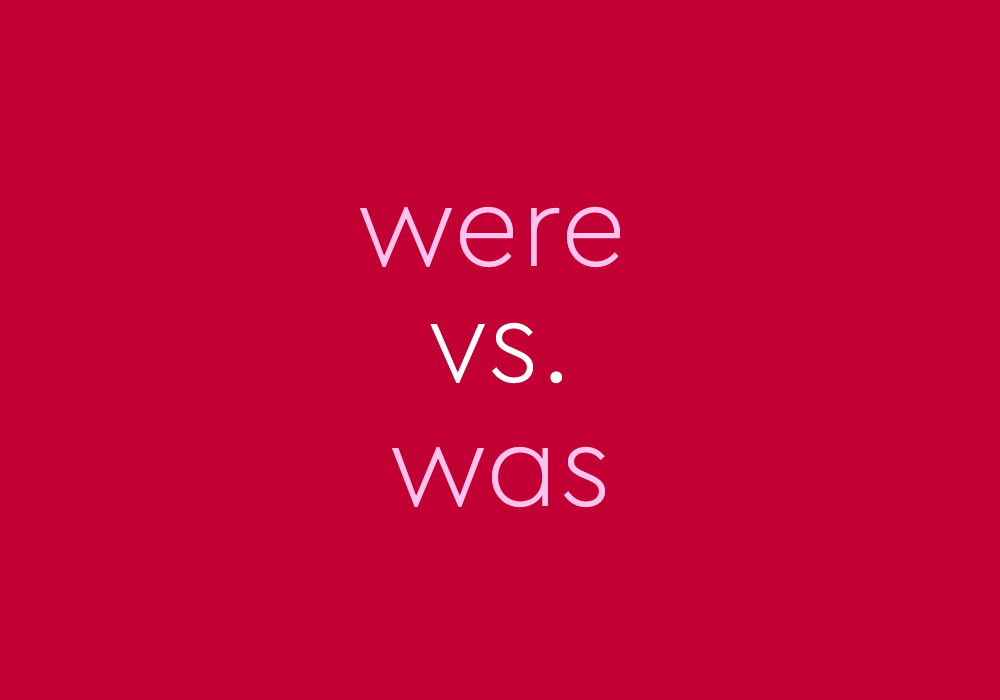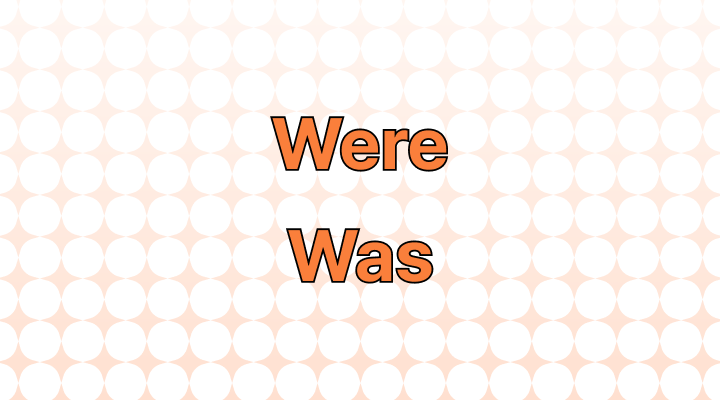"Were" and "was" are both past tense forms of the verb "to be," but they are used differently based on the number of the subject (plural or singular) and in various contexts, including reported speech and hypothetical situations.
What does the word were mean?
"Were" is the past tense plural form of the verb "to be." It is used to describe multiple actions or states of being that occurred in the past. For example, "they were at the store yesterday."
What does the word was mean?
"Was" is the past tense singular form of the verb "to be." It is used to describe a singular action or state of being that occurred in the past. For example, "He was at the store yesterday."
How are the words were and was used?
"Were":
- Used with plural nouns and pronouns: "They were tired."
- Used for multiple actions or states of being in the past: "They were studying all night."
- Used in the past subjunctive mood: "If I were you, I'd be cautious." (Note: In modern English, the past subjunctive form "were" is often used for both singular and plural subjects in hypothetical or contrary-to-fact situations.)
"Was":
- Used with singular nouns and pronouns: "She was tired."
- Used for singular actions or states of being in the past: "I was studying last night."
- Used in the past tense of reported speech: "She said she was coming."
How are the two words, were and was, different?
- Number Agreement: The primary difference between "were" and "was" is the number agreement. "Were" is used with plural subjects, while "was" is used with singular subjects.
- Plural: "They were at the park."
- Singular: "She was at the park."
- Verb Conjugation: "Were" is the past tense plural form of the verb "to be," whereas "was" is the past tense singular form. This means that when constructing sentences in the past tense, you need to match the verb form to the subject's number.
- Hypothetical or Unreal Situations: "Were" is often used in hypothetical or unreal situations, even when referring to singular subjects. For example, "If she were here, she would help." This usage indicates a contrary-to-fact condition.
Practice Questions
- The weather were/was beautiful yesterday.
- They were/was all excited about the trip.
- I were/was the last one to arrive at the party.
- She was/were very tired after a long day at work.
- There were/was three cats in the yard this morning.
- We were/was watching a movie when the power went out.
- He was/were surprised by the unexpected news.
- You were/was the best player on the team last season.
- Yesterday, they were/was at the beach all day.
- My favorite color were/was blue when I was a child.
Answer Key:
- was
- were
- was
- was
- were
- were
- was
- were
- were
- was
Want to sound like a native speaker?
Engram’s AI-powered grammar checker makes your English sound like a native speaker’s, suggesting natural English expressions on top of fixing grammar, spelling, punctuation, word order, and vocabulary.

Reference














